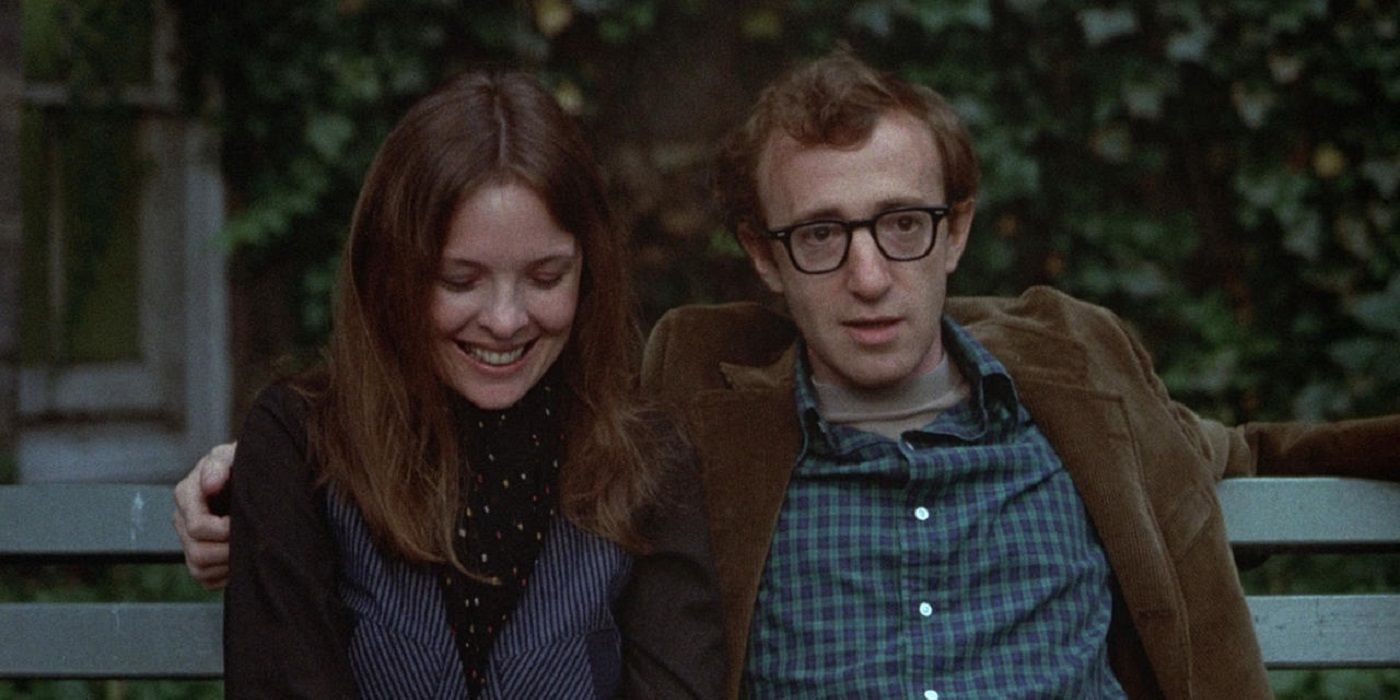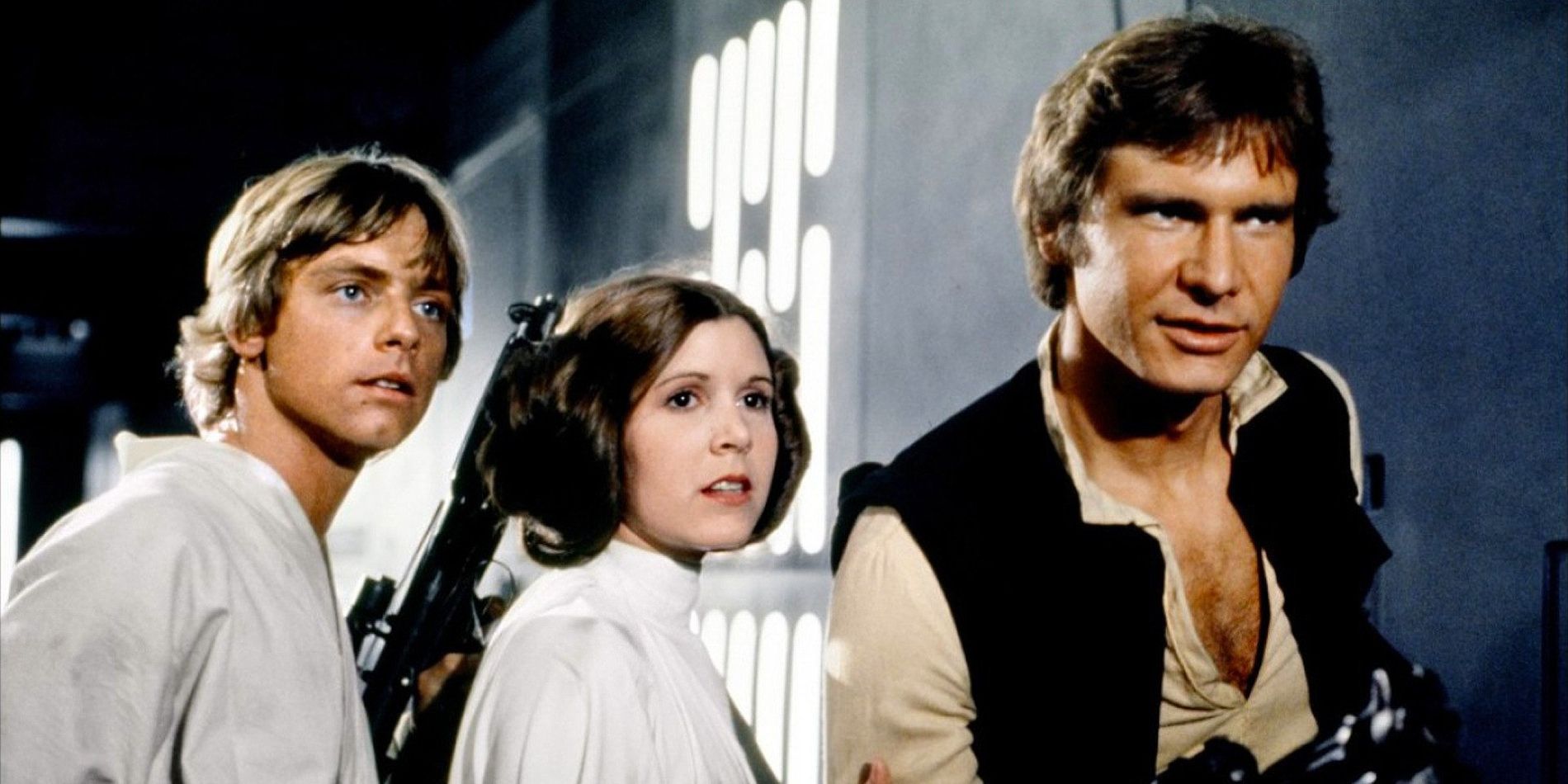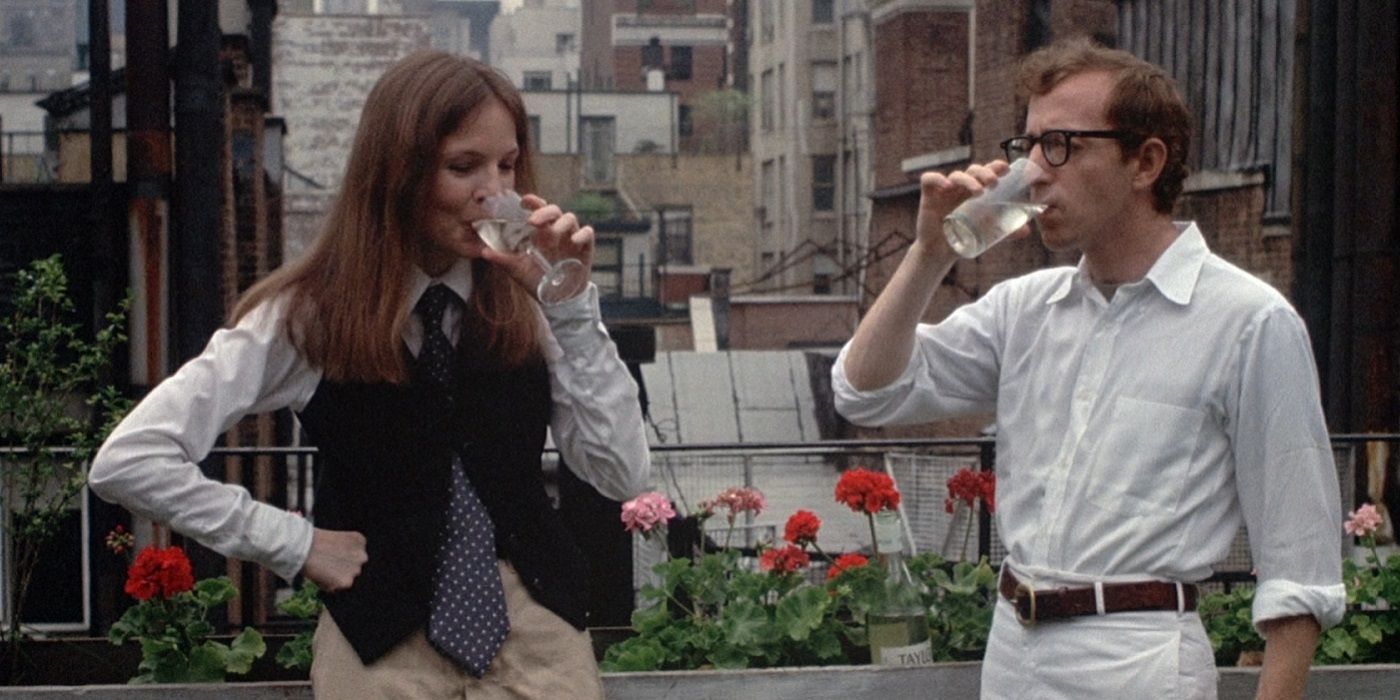Each Oscar race unfolds in a different way. Some years, a clear frontrunner emerges early on and coasts to a Best Picture victory. Others feature a tightly contested awards circuit where a controversial pick is declared the winner. Perhaps the most interesting are the years where there are two (or more) legitimate choices that leave the voters debating for months. Either one would be a worthy Best Picture, but one unfortunately has to lose. In 1977, the Academy had one of their toughest decisions to make when Woody Allen's transcendent romantic-comedy Annie Hall was matched up against a little film by George Lucas called Star Wars.
Forty years after their respective releases, both are hailed as two of the greatest films ever made, marking the next step forward for their genres as they've become cultural touchstones. Star Wars and Annie Hall were critical and commercial hits, as they earned near-universal praise and finished in the top 10 on the box office charts for the year (with a considerable gap between them, admittedly). Though Time had declared Lucas' space opera the movie of the year, the Oscars gave all the top awards to Allen. Annie Hall won Best Picture, Best Director, and Best Original Screenplay over Star Wars, which had to settle for a handful of technical awards for its revolutionary visual effects. Decades after the fact, moviegoers still can't decide if the Academy chose correctly. Did Annie Hall deserve to beat Star Wars? Let's analyze the situation.
The case for Star Wars winning is well-known by now. It is without question one of the most influential films ever released, and just about every director working in the realm of studio blockbusters cites it as a reason they broke into the profession. Even in the film's immediate aftermath it was inspiring aspiring helmsman; James Cameron quit his job as a truck driver after seeing Star Wars to work in movies. It's easy to see why Star Wars landed with this kind of impact - it represents the pinnacle of movie magic. From the moment the opening crawl began and John Williams' now-iconic fanfare blasted through the speakers, audiences were introduced to a whole new universe with boundless possibilities. It's easy to forget today, but back in 1977, Star Wars was a massive risk due to its strange otherworldly concepts, but it struck numerous chords with audiences thanks to the characters that grounded the story in a humanly relatable way and a story that captured the imagination.
Lucas also broke new ground with Star Wars, completely changing the way films were made. He created the visual effects company Industrial Light & Magic, and the wizards there accomplished sequences that had never been attempted before. The Death Star trench run is still as riveting now as it was back then, and the fast editing style kept the pace moving forward, making everything exciting. The entire movie was a spectacle to behold, pushing the art form and visual language of cinema to the next level via its techniques. Even the use of a classical music score was a gamble on Lucas' part, and that obviously paid off in spades. Star Wars was truly unlike anything anybody had ever seen, making it quite the marvel on multiple levels. Because of its seamless blend of style and substance, the galaxy far, far away became a cultural phenomenon that seized the zeitgeist and has never let go. It's probably the only movie that could get away with selling a cardboard box for the holiday shopping season. For those who prefer escapism at its finest, Star Wars should have won Best Picture.
But Annie Hall was a rightful rival, and even the most die-hard Star Wars aficionados would be foolish to discredit it. Allen made a quantum leap artistically with this film, which was much different from his earlier works. It took an uncompromising look at adult romantic relationships, hilariously and heartbreakingly exploring the various ups and downs a couple can experience along the way. Annie Hall subverted the typical rom-com formula with its study on love, buoyed by Allen's brilliantly funny screenplay (co-written with Marshall Brickman) that is still regarded as one of the best. He crafted two rich characters in his Alvy Singer and Diane Keaton's Annie Hall (a role that won her an Oscar), giving both strong arcs and a variety of interesting traits. The humor in Annie Hall hits hard because it's at times painstakingly relatable. Anyone who watches it has probably lived through something similar they can recall; Star Wars is for the dreamers, while Annie Hall feels all too real on occasion, making it connect in a biting manner.
Lucas definitely earned his Best Original Screenplay nomination, but an argument can be made it was more for the sheer creativity of building a faraway galaxy from scratch than anything else. As blasphemous as this is to suggest, Alvy and Annie probably have more depth than just about anyone in Star Wars (remember, this is just the original film). Luke Skywalker, Han Solo, Princess Leia, and Darth Vader all fit the basic archetypes based on old mythology and rarely get beyond that. In contrast, Alvy is a deeply-flawed, contradictory individual fueled mainly by neurotic and paranoid thoughts and his severely negative outlook on life - yet he remains a relatable "protagonist" because it's easy to see part of yourself in him. Annie Hall's namesake can at times be socially awkward and unsure of herself, but builds self-confidence and emerges as a better person by the film's end, choosing to do what fulfills her emotionally. The two are dual leads and undergo deep changes that feel earned in just 90 minutes of screen time. And though both films are quotable, Allen's dialogue pops a little more than Lucas' and can still make people laugh. Comedy is usually a product of its era, but Annie Hall is timeless due to its character-based humor. It's still relevant and influences rom-coms to this day.
If the movies were competing against each other today, the Academy would likely split the Best Picture and Best Director awards, with the latter trophy going to Lucas. Allen deftly handled Annie Hall and crafted some visually interesting sequences (such as the "split-screen" therapy session and New York vs. Los Angeles), but Star Wars was more of a monumental undertaking in terms of technical filmmaking. Lucas' unique vision is a major reason why it was so successful and pushed the boundaries of the medium. His accomplishment in world-building cannot be understated. Allen was definitely a deserving nominee, however, Annie Hall is driven by scenes of people talking to each other. Star Wars has dialogue-driven scenes, but also some standout action set pieces that were difficult to pull off. From a certain point of view, it was a more taxing job because of all the moving parts.
As for Picture, that's a closer call. In a way, it was the previous generation's Avatar vs. The Hurt Locker. One demonstrates what is possible with moviemaking technology by engrossing audiences in a fantasy world with memorable, yet stock, characters, while the other is firmly set in the "real world" and resonates because of its humanistic and poignant narrative. History would remember either was the winner fondly, but Annie Hall may have the better claim to the top prize if only because the two leads are better-realized individuals and the story hammered home themes and topics that felt more personal and raw. Star Wars is the perfect piece of pop art, designed for us to live vicariously through Luke, Han, and Leia as some grand wish-fulfillment. These two represent the dueling dichotomy of film, since they both excel greatly at what they set out to do. The voters were in an unenviable position, but they did the best they could. Annie Hall is no Crash and deserved to come out on top in what was surely a close race.
One interesting anecdote: The Last Jedi writer/director Rian Johnson has noted Annie Hall was the movie that inspired him to be a filmmaker, so those of us impatiently counting down the days until Episode VIII indirectly have Woody Allen to thank.



